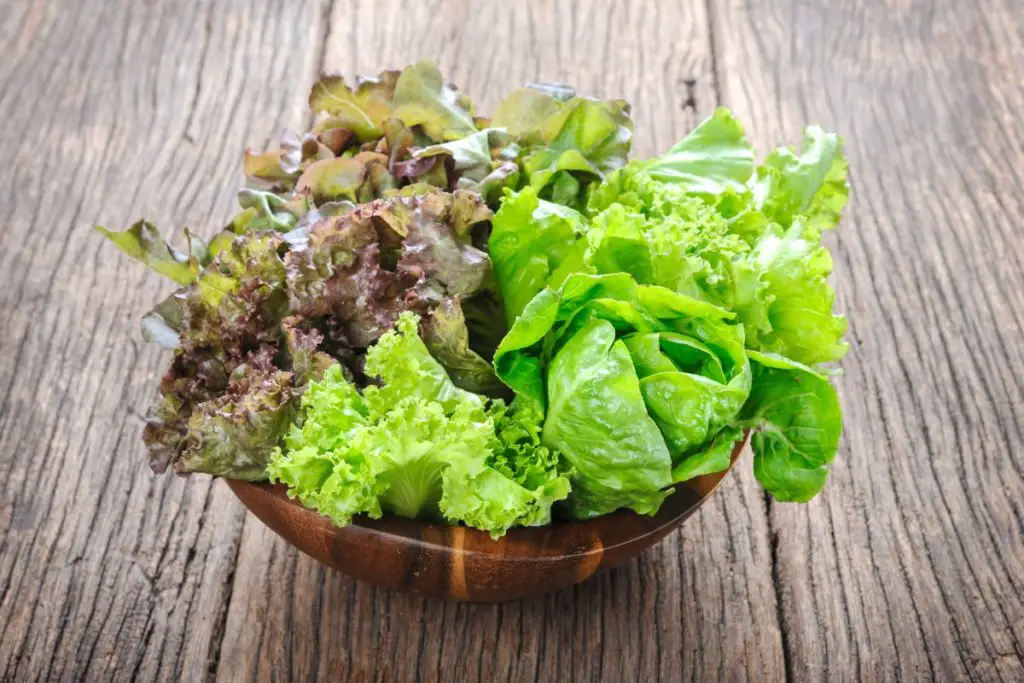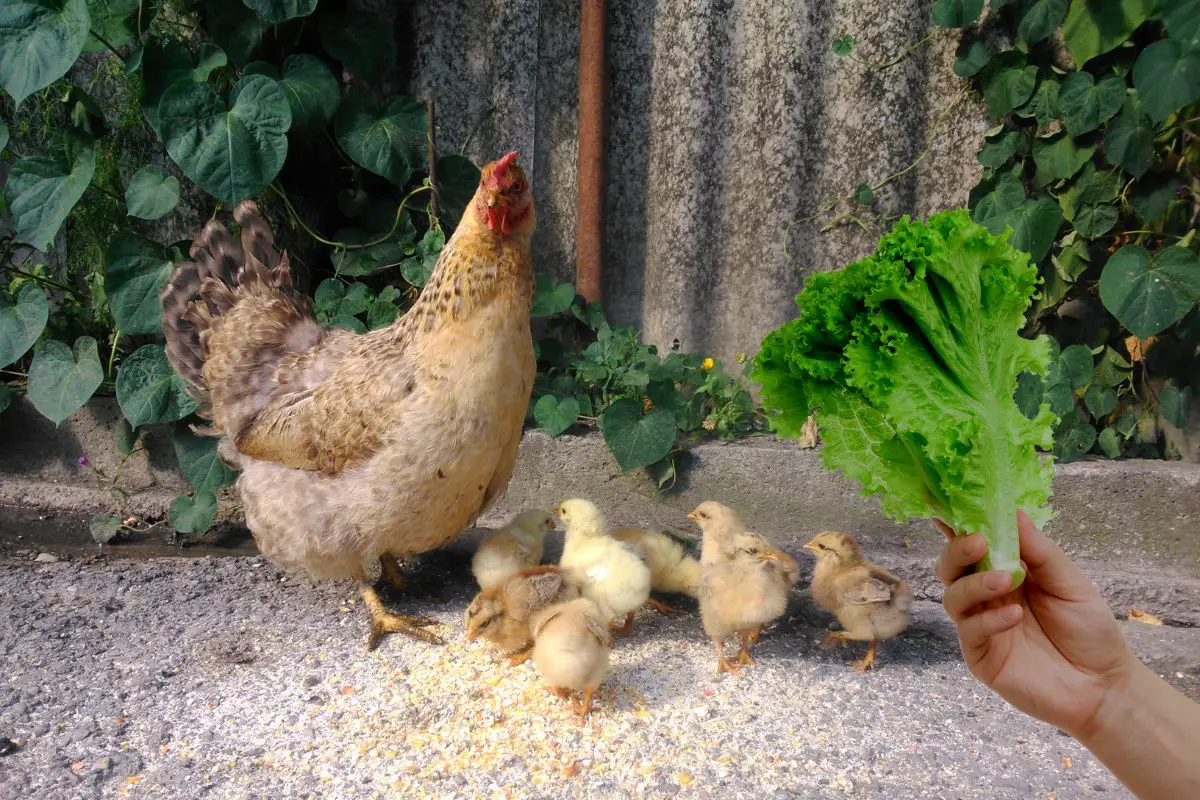Chickens do eat lettuce and owners often throw leftover lettuce in their chicken coops. However, lettuce is very low on nutritional value and there are far better foods out there.
Different types of lettuce offer various health benefits for chickens. Chicken keepers often will throw veggies like lettuce into chicken coops as a supplement to layer feeds. Backyard chickens can benefit from some varieties of lettuce, but others may be harmful in large amounts.
This article will cover different types of lettuce and how they can fit into a chicken’s diet as a healthy food, as well as discussing which members of your flock should never be served lettuce.
Table of Contents
Chickens Can Eat Lettuce (But It’s Not The Best)
Lettuce can safely be eaten by chickens. It’s not the worst chicken treat but it’s far from the best because lettuce is low in nutritional value. While lettuce contains small amounts of many different nutrients, chickens would need to eat a lot of it, and most supplemental foods should not be fed in excess.
Lettuce contains the following vitamins and minerals:
- Antioxidants
- Vitamin A
- Calcium
- Potassium
- Magnesium
- Vitamin C
Lettuce can help fight free radicals and benefit the immune system of your roosters and laying hens, but isn’t the best for young pullets and cockerels who are still growing.
Free range chickens may find and eat wild lettuce while foraging, but these should be limited. You don’t want your birds to fill up on something that gives them so little in return.
What are the Best Types of Lettuce for Chickens to Eat?
Dark, leafy green lettuce varieties such as romaine lettuce, arugula, and spring mixes are better options if you want to feed lettuce to your chickens. These healthy snacks are good to add in small quantities for your chickens’ health.

If you do offer these lettuces, make sure you provide them in small pieces to make it easier for your chickens to eat. You can make a salad for chickens by mixing bits of lettuce with other fruits, seeds, and nuts to give them more complete nutrition.
Can Chickens Eat Swiss Chard?
Yes! Chickens can safely eat swiss chard as a treat. It contains Vitamin E and folate which are great for chickens.
However, swiss chard is a member of the Amaranth family and contains oxalic acid which in large amounts is harmful to chickens.
Serve swiss chard to chickens in small amounts only.
Can Chickens Eat Iceberg Lettuce?
Iceberg lettuce is not the best for chickens to eat. It offers few nutrients, and it takes more calories to eat it than it returns.
Iceberg lettuce also has a high water content, and watery foods are not good for chickens in large amounts because they cause digestive problems and diarrhea.
Can Baby Chicks Eat Lettuce?
Baby chickens should not be fed lettuce because it doesn’t offer them the nutrients they need. Their starter feed contains all of the nutrition that they require and lettuce would fill them up to their disadvantage.
If you want to offer baby chicks a treat, you can provide them with the yolk of a boiled egg, as long as it is finely cut up.
What Can I Offer My Chickens Instead?
While you can offer lettuce as a supplement to chickens, there are much better options that provide more nutrition and that chickens enjoy more. Blueberries, cucumbers, watermelon and mealworms all offer exponentially more nutrients to your flock.
If you do choose to offer chickens lettuce, ensure that it is thoroughly washed and peel off the outer leaves. Trim the bottom of the lettuce head, and you can shred the rest or dice into manageable chunks for your chickens to enjoy as an occasional treat.

